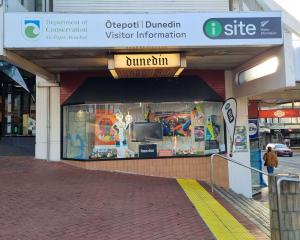In a report to a Southern District Health Board committee meeting tomorrow, Public Health South says it has been unable to find the cause of some outbreaks.
''For several of the recent outbreaks in the elderly care facilities and hospitals, it has been difficult to determine whether they reflect high levels of infection circulating in the community, cross-infection due to patient and/or staff movements between facilities, or a combination of both.
''Recent events have shown the need to rapidly develop a surveillance system for all healthcare-acquired infections within this district.''
The system would involve mandatory reporting in DHB facilities and DHB-contracted providers, better communication with facilities, improved management of patients moving between providers, audits and root cause analysis.
Public Health South investigated 11 outbreaks of gastroenteritis that happened between May 1 and June 4: two early childhood centres, one disability support home, six rest-homes, Clutha Health First and two wards in Dunedin Hospital. All up, 252 people were ill, including 62 staff.
''In five of these outbreaks, norovirus has been identified as the causative organism, with laboratory results still pending from several outbreaks.
''Outbreaks within [community] facilities represent a significant threat to the health of vulnerable people.
''Outbreaks within hospitals represent a serious breach of the duty of care and highlight a need for system responses.''
Outbreaks of acute gastroenteritis are notifiable to Public Health South.
Public Health South medical officer of health Marion Poore told the Otago Daily Times it was possible a new strain of norovirus was causing the higher-than-usual prevalence.
''We haven't got all our strain information back yet from ESR.''
A surveillance system enabled more co-ordination on a local level than the notification system. It would take time to implement in the community-based providers, she suggested.
Presbyterian Support Otago services for older people director Maurice Burrowes said when contacted he would need more information before commenting on the proposed surveillance system.
Ross Home and Hospital, which is operated by PSO, experienced a two-week outbreak in May.
Mr Burrowes said there seemed to be more norovirus around this year.
Outbreaks were ''hugely'' expensive for residential facilities, because of increased use of supplies and staff absence.
Increasing numbers of dementia patients presented an infection control challenge, he said.












